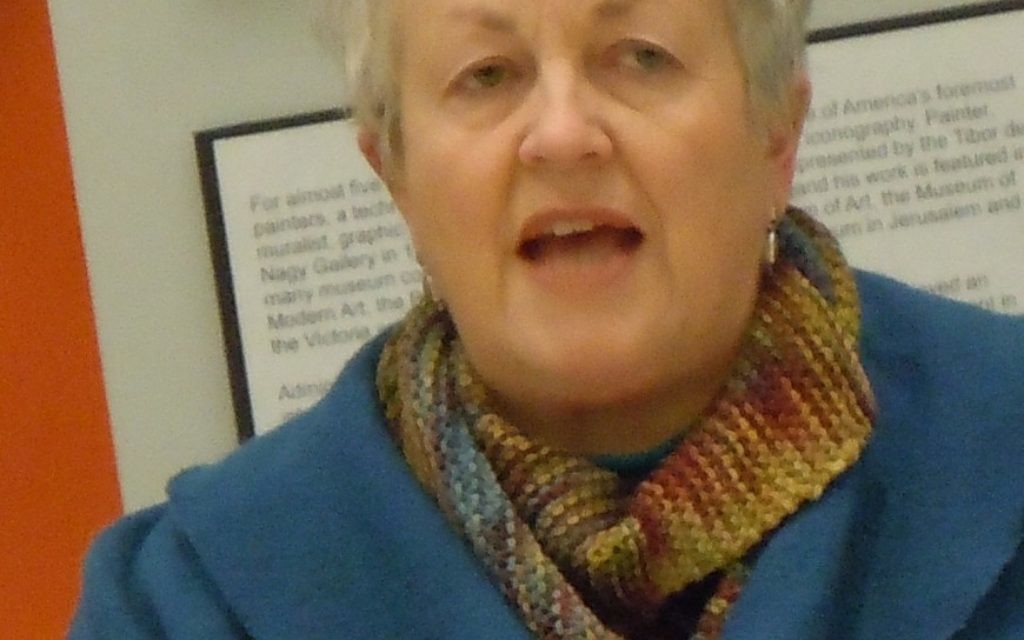Orrock: Expect Real Legislative Action in March
The Georgia General Assembly is roughly a quarter of the way through its 40 workdays for the 2016 session, but veteran state Sen. Nan Orrock says the real action won’t start until mid-March.
That’s because qualifying for the primaries for legislative seats is the week of March 7 to 11, and state representatives and senators planning to seek re-election want to avoid upsetting constituents and inspiring party challenges until it’s too late for opponents to get on the ballot, Orrock told the Jewish Community Relations Council of Atlanta at its annual legislative preview session Tuesday, Jan. 19, at Congregation Or Hadash.
Few legislative districts are competitive between the parties, so the primaries are the key to winning or holding a seat, said the Atlanta Democrat, in her 30th year in the legislature. With competitive presidential primaries set for March 1 in Georgia and other Southern states, legislators and political activists also will be distracted by national politics throughout February.
Get The AJT Newsletter by email and never miss our top stories Free Sign Up
Orrock expects the action to be fast and furious starting Monday, March 14, because legislators “want to get out and get running” for the May 24 primaries.
Election years aren’t typically the time for major legislation, but some important issues are on the docket.
Still on the table from last year is Senate Bill 129, the Religious Freedom Restoration Act, which proponents claim offers important assurances of the free exercise of religion and which opponents see as a license to discriminate against the LGBT community. When Rep. Mike Jacobs succeeded in adding nondiscrimination language to the legislation in the House Judiciary Committee last March, the bill was pulled from consideration.
“I don’t think they’re going to pass that bill,” said Orrock, who acknowledged having little say on the issue in the overwhelmingly Republican Senate. She said the business community is prepared to fight the legislation for fear of losing $1 billion in commerce if it becomes law, based on the experience of states that passed similar measures.
But S.B. 129 isn’t the only bill exploring the line between protection for LGBT rights and freedom of religion.
Sen. Greg Kirk, R-Americus, has introduced S.B. 284, the First Amendment Defense Act, offering protection to officials and nonprofit groups opposed to the Supreme Court’s legalization of same-sex marriage. Rep. Kevin Tanner, R-Dawsonville, has introduced more focused legislation to guarantee that businesses (H.B. 756) and clergy (H.B. 757) don’t have to participate in same-sex marriages.
Shelley Rose, the senior associate director of the Anti-Defamation League’s Southeast Region, told the JCRC that the ADL has real concerns about religion being changed from a shield to a sword by those bills, which have proponents among evangelical Christian leaders.
“They need to hear from us that all the religious community is not in the same camp,” she said. “We have to speak out.”
Rose also said the ADL is working with law enforcement and legislators to line up support for hate-crimes legislation, a national ADL priority, but she doesn’t expect a bill to pass this year.
Two other JCRC legislative priorities, increased access to quality health care and quality early childhood education, were addressed at the meeting by Harry Heiman of the Morehouse School of Medicine’s Satcher Leadership Institute and Mindy Binderman of the Georgia Early Education Alliance for Ready Students, respectively. Both laid out the needs for more attention and more spending in those areas, with the prospect of improving the economy and saving money in the long term.
For once, Orrock said, the legislature has money to play with this year after the business community helped push through a transportation tax increase last year. Not that lawmakers will be spending a lot of time debating the spending: She said the House and Senate spent the entire day of the JCRC meeting holding budget hearings that used to be spread over two weeks.
That condensed schedule, she said, is all about the control that leadership can exert “when you don’t give people a lot of time to see what’s in the bill.”







comments